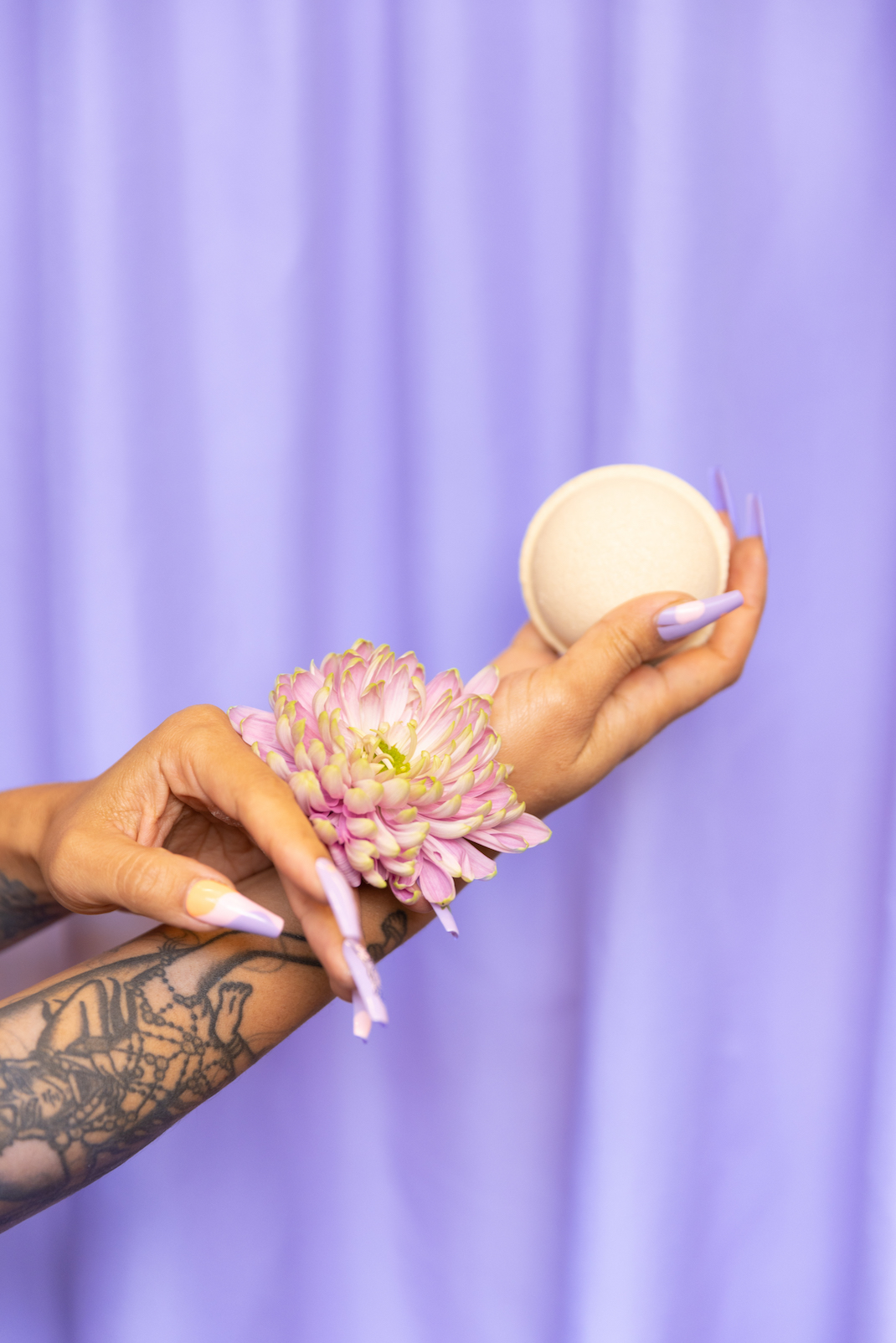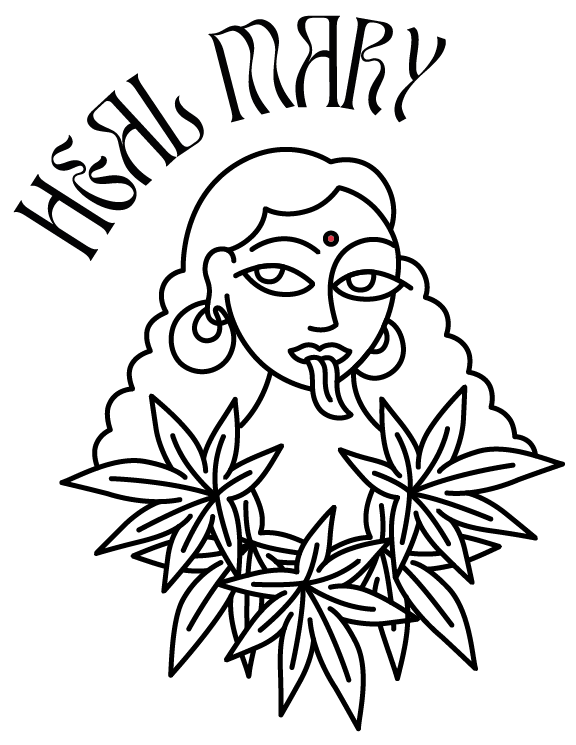Ayurveda is the very oldest medicine in the world. It is the GOAT of all health systems. To this day, Ayurveda is fully alive in India, and it is also becoming more and more known in the West.
What does Ayurveda mean?
Ayur means science or knowledge and veda means life. Ayurveda literally means 'the science of life'.
Where does Ayurveda come from?
This is what the tradition says: Five thousand thousand years ago, a rishi (seer) who lived in the Himalayas received a series of messages in deep meditation. He passed on this knowledge to the seers who also settled there, hoping to return to the villages with solutions for the many diseases. After two thousand years of oral transmission, the precepts of Ayurveda were written down three thousand years ago. The knowledge was later brought to China, where it has become Chinese medicine. It also traveled the Silk Road and ended up in Indonesia, the Arab world, African countries and Europe. Western plant medicine is based on Hindu science.
What is the difference with Western medicine?
Here we have the GP, and if the GP determines that you are not ill, then you are simply healthy here. But Ayurveda assumes that being healthy means more than not being sick. Health, according to Ayurveda, is well-being of body, mind and soul. This healing science takes a holistic view of health: your emotional and spiritual well-being also count. Another difference is that Ayurveda assumes that everyone needs a different eating and living pattern. Not a one-size-fits-all approach, but one that assumes that we are unique and always changing.
Why is Ayurveda relevant now?
Now that everyone from your sister to your uncle is doing yoga, attention is also being paid to Ayurveda. Ayurveda is the sister of yoga, the two cannot live without each other. The thing is, you need Ayurveda in your life to be able to practice yoga. Yoga is a spiritual activity. The goal is to become one with the Bramah, the all-encompassing consciousness. But many people do yoga for other reasons: back pain, stress or other discomforts. That work out of the way of physical, mental and emotional imbalance; that's Ayurveda. So when you do yoga you are often actually practicing Ayurveda to practice.
In addition, more and more people are interested in more natural alternatives to modern medication, now that the pharmaceutical industry has grown into a multi-billion dollar industry. Plant-based medicines and systems that see physical, mental, emotional and spiritual health as one (holistic) are slowly penetrating the mainstream.
Who is Ayurveda for?
… for anyone who would rather not indiscriminately take synthetic medicines to combat symptoms, but who want to stay preventively healthy or heal themselves.
…for those who are done with lifelong ailments.
…for whom self-healing and self-care is important.
…for yogis. For you cannot transcend your physical body if you are a wreck, physically, mentally or emotionally.
…for those who believe that being healthy means more than the absence of disease; that health should be viewed holistically.
…for those who do not believe in a one-size-fits-all approach, but an individual, dynamic approach.
…for those who are open-minded enough to understand that everything is connected; from your brain fog to your constipation and your emo moods.
What are the basic principles?
According to Ayurveda, there are three types of energy that permeate the entire universe, nature and us: the three Doshas. These regulate how your body works. The distribution of those Doshas is different from person to person. And that individual division determines the characteristics of your personality, your habits, preferences, weaknesses and strengths.
When the three Doshas are evenly distributed, they are in harmony. You are then very healthy and you are super good in your own skin. But that's rare, if only because the distribution keeps changing. If your doshas are out of balance, you will feel less well and can get sick. That is why Ayurveda has included all kinds of rules that you can apply yourself to restore that balance.
What can you do with it?
If you apply Ayurveda in your daily life, you can heal yourself from all kinds of ailments that you may have struggled with for a long time. Suddenly it turns out that your pimples, dry skin, that you are always cold, your hormone problem and the confusion in your head are all related. How? Your lifestyle and diet did not match your mind-body type. And your mind-body type is your unique distribution of the Doshas.
The three doshas are:
1. Vata (wind+space).. Vata is the principle of movement. Think of all the movement in your body, such as
your breathing. It is also responsible for the nervous system.
2. Pitta (fire+water) Pitta is the principle of metabolism. The Pitta energy also regulates you
body temperature.
3. Kapha (earth+water) Kapha is the principle of structure. It is this energy that your body
stability and sturdiness.
Dosha means energy, and you always have a mix of the three types of energy in you. One type of energy predominates in almost everyone. The distribution is dynamic: the weather, your own lifestyle, your environment and, for example, a pregnancy influence that distribution. It's about eating and living in a way that balances mind and body. What does that have to do with the elements? Everything. For example, if you have too much wind energy in your body, you will also have it in your gut and this can manifest itself as constipation. Too much wind energy in your head can turn creativity and idealism into anxiety and confusion. And those dry lips and irregular periods? Yup, too much wind, Vata. You are always a combination of the three. By creating harmony, you give yourself a facelift from the inside, as it were.
How do I find out what dosha I am?
To find out how the Doshas are distributed in you, take our quiz!
The quiz provides insight into your current state. So you may now be primarily a Pitta, but it may well be that you were born Kapha. The Dosha you were at birth is your Prakruti, and your present Dosha is your Vikruti. Maybe you were a Vata child and now you also have a lot of Pitta energy in you. Vata children are bright, wake up early and active, can daydream forever, are creative but also need a lot of warmth, hugs. So you can change your Dosha, but you do want to stay in balance. There are times when you feel more Vata, or Pitta or Kapha. But your Prakriti is the basis, it is your first best friend that you always fall back on.
What if I am completely in balance?
It may be that all Doshas are completely in balance, and that you are not bothered by anything at all. The most people recognize themselves in at least one imbalance in the body or in the mind. Then follow the dosha rules that match.
Ayurveda shows us that body and mind are interconnected. A whole new world opens up for more and more people when they do a dosha test for the first time. Ayurveda is a game changer. Besides the Doshas, there are many more aspects, such as detoxification of the Dhotas, wellness rituals and much more. But we'll get to that.








